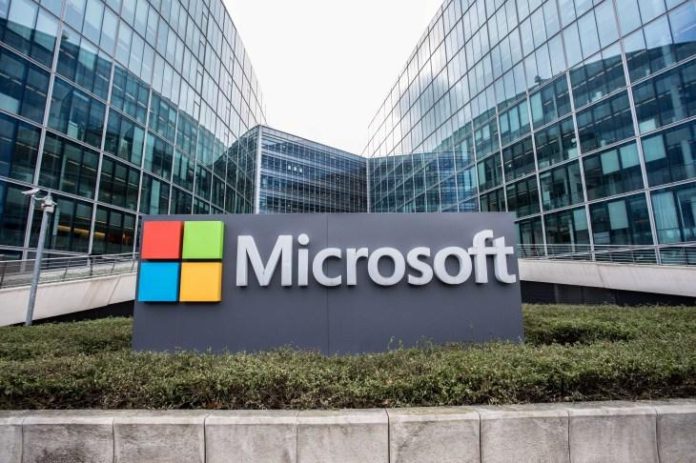By Jeph Ajobaju, Chief Copy Editor
A wider scope is being opened for tech savvy Nigerians, particularly coders, to earn dollars at home working for European and American firms abroad without visa hassles and the risk of illegal immigration.
Middle class Nigerians have fled overseas in droves since the 1980s when they began to realise that life would get worse in the country.
A total 29,723 Nigerians who travelled to the United States on business and tourist visas between October 1, 2017 and September 30, 2018 have overstayed.
This represents 15.18 per cent of the total 195,785 expected departures, said the U.S. Department of Homeland Security (DHS).
Across the U.S. northern border, over 2,000 Nigerians claimed assylum in Canada in the same period, with 12,138 more pending applications as of December 2018, according to data compiled by the Refugee Protection Division of the Immigration and Refugee Board of Canada.
$100m tech boost
The bleak economic picture that began to crystallise in the 1980s has not changed. But the landscape of education has altered dramatically to produce more Nigerians with computer skill.
Now, if you can code you can earn hard currency in euros or dollars in a cosy office in Lagos doing projects for companies in Europe, America, and beyond. .
Compared with London, Brussels or New York, hard currency earned in Lagos has more value because the cost of living is lower.
Andela Inc., a technology startup in New York, has been training software developers in Lagos, Nairobi, and Kampala since 2014.
And Microsoft Corp has ring-fenced $100 million to boost that by opening an Africa Technology Development Centre (ADC) with sites in Nigeria and Kenya over the next five years to 2024.
The initiative acknowledges Africa’s growing importance as a global hub for talent, Microsoft said in its announcement on May 15, 2019.
Microsoft aims to recruit 100 full-time engineers by the end of the year, and 500 engineers by the end of 2023, tapping African innovation in fields like fintech, agritech, and offgrid energy.
The Africa hub will also support Microsoft’s established businesses such as Office, Azure, and Windows.
Global tech giants, including Alphabet Inc and Facebook, have been increasing investment on the continent to leverage on growing economies with rising access rates to the internet by a youthful population.
“The ADC will be unlike any other existing investment on the continent. It will help us better listen to our customers, develop locally and scale for global impact,” Microsoft Executive Vice president, Phil Spencer said in Nairobi.
“Beyond that, it’s an opportunity to engage further with African partners, academia, governments and developers – driving impact and innovation in sectors important to Africa.”
Microsoft is partnering with local universities to create curriculum designed for the next wave of digital skills, including data science, AI, mixed reality, and application development.
Its investment in ADC infrastructure and employment of qualified local engineers is expected to be worth $100 million in the first five years.
“Our desire is to recruit exceptional engineering talent and provide the opportunity to work on the latest technologies suitable for Kenya, Nigeria and the rest of the world.
“In doing so, engineers are able to enjoy meaningful work from their home countries, while plugged into a global engineering and development organisation,” added Microsoft Corporate Vice President, Michael Fortin.
On the ground training
Back in 2016, the Chan Zuckerberg Initiative, which invests in both for-profit and non-profit entities, led a $24 million funding round from which Andela benefited to operate its programme in Lagos and Nairobi.
Andela, a for-profit company, was created in 2014. It aims to train 100,000 developers over the next 10 years, according to co-founder and Chief Executive Officer (CEO), Jeremy Johnson.
Many will come from Africa, where 60 per cent of more than one billion people are under 25 and many young people are out of work.
Between 2014 and 2016 Andela engaged about 200 applicants, fewer than 1 per cent of the 40,000 applications.
Participants undergo a four-year programme in which they are paid to study web and mobile software development.
After a few months, they also work for tech companies that hire Andela to offset a shortage of engineers in the United States.
Johnson said he set up Andela after seeing the chance to generate thousands of jobs in Africa by running a programme to find “genius-level” software developers, who then work remotely for U.S. and European companies.
In 2016, Facebook CEO Mark Zuckerberg visited Andela in the tech startup hub in Onike-Yaba, Lagos.
By 2017, Andela had received inquiries from more than 40,000 aspiring Nigerian software engineers. Fewer than 300 were accepted.
Tolulope Komolafe, a computer science graduate, applied to join one of Andela’s boot camp-style training programmes, was among the first to be accepted.
“It was intense,” Komolafe said of the training. “This is something you have to put everything you have into.”
Andela identifies Africans with an aptitude for coding and then equips them with the technical and teamwork skills they need to work remotely for technology companies in the West.
Partners range from tech giants, including IBM and Microsoft, to startups such as Everplans, an end-of-life planning platform based in New York’s Flatiron district, whose software Komolafe has helped to develop from Andela’s office in Lagos.
With job vacancies for developers in industrialised countries far outstripping candidates, Andela believes it has captured only a fraction of the potential demand.
“We’re solving the global technology skills gap problem,” said Nadayar Enegesi, an Andela co-founder, speaking at the company’s Lagos premises, where dozens of coders sit tapping at keyboards in near silence.
Andela is spurring the broader evolution of the Nigerian tech sector, where online payments companies and retailers have set the stage for rapid growth in e-commerce.
“The companies working with us are generally not doing it because of interest in social impact. They are doing it because they need real talent,” Johnson said.
At the end of her tenure in Andela’s four-year cycle for engineers, Komolafe scouted for jobs with other startups – but also aims to become a founder too.
“Four years ago, most people would probably say, ‘I want to work in a bank, or in Shell or Chevron. Right now, people are saying, ‘I want to be a developer – because then I make a change, and I can actually say that what I do helps people,’” she said.
Lagos government support
There are vibrant cells of IT startups in Onike-Yaba, Lagos, Nigeria’s Silicon Valley, with significant foreign interest.
And there is a huge Computer Village in the heart of Ikeja which provides the Information Communication Technology (ICT) needs of Nigeria, Cameroon, Benin Republic and other neighbouring countries
Computer Village transacts business worth N25 billion daily.













